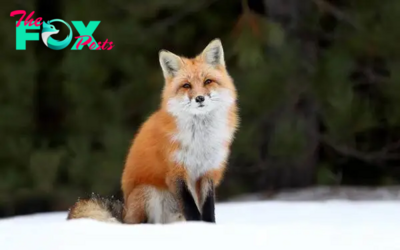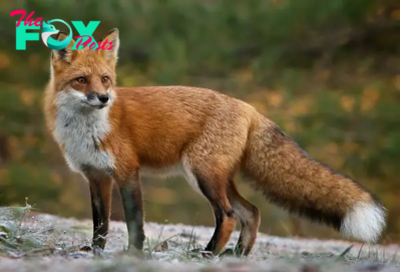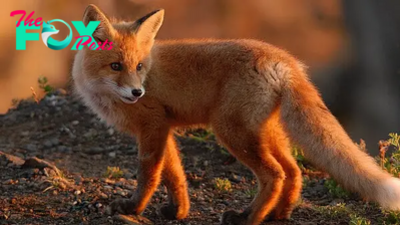Animals
The Secrets of Monogamy: The Mating Habits of Wolves and Their Unbreakable Family Bonds
Ever wondered what keeps a wolf pack so tight-knit, almost like a family unit?
The answer lies in the fascinating mating habits of wolves, where loyalty and strong family bonds are not just stories from fairy tales but are deeply rooted in their survival strategies. Wolves are known for their monogamous relationships, often mating for life, and their approach to raising young is a testament to the power of teamwork and commitment. This article delves into the intricate mating habits of wolves and how these habits create the unbreakable bonds that define the wolf pack.
Wolves are one of the few species in the animal kingdom known for practicing monogamy. When a male and female wolf find each other, they often form a pair bond that lasts for life. This bond isn’t just about reproduction; it’s the cornerstone of the pack’s social structure. The alpha male and female lead the pack together, and their relationship sets the tone for how the entire group functions.
But how does this bond form, and what makes it so enduring?
The journey begins with courtship, where the male and female wolf engage in a series of behaviors to establish their bond. This period of courtship is crucial, as it allows the wolves to build trust and ensure compatibility. They might playfully chase each other, engage in gentle nuzzling, or even share food. These actions are more than just romantic gestures—they’re practical steps that help both wolves assess if they’re ready to take on the immense responsibility of leading a pack and raising a family.
When the female wolf becomes pregnant, the bond between the pair deepens. The male wolf takes on the role of protector and provider. He ensures that the female is safe and well-fed during her pregnancy. This period is crucial, as the survival of the future pups depends on the Health and well-being of the mother. The male’s dedication during this time is a testament to the strong family bonds that wolves are known for.
After about 63 days, the female gives birth to a litter of pups, usually in a secluded den. This is where the true strength of the wolf’s family structure comes into play. Both the male and female are heavily involved in raising the pups. The male continues to provide food, while the female cares for the newborns. This cooperative parenting is essential for the survival of the young wolves. In the wild, where dangers lurk at every corner, having both parents actively involved increases the pups’ chances of survival.
But the responsibility doesn’t just fall on the parents. The entire pack gets involved in raising the pups. Older siblings, aunts, and uncles—all members of the pack—help care for the young. This communal approach to parenting reinforces the strong family bonds that are the hallmark of a wolf pack. It’s a true team effort, with each member playing a crucial role in ensuring that the next generation thrives.
As the pups grow, they learn the ways of the pack, guided by the alpha pair and other adult wolves. The alpha male and female continue to model strong leadership and partnership, teaching the young wolves the skills they’ll need to survive and eventually, lead their own packs. The monogamous bond between the alpha pair provides stability, ensuring that the pack remains cohesive and functional.
Even when the pups reach adulthood and leave to form their own packs, the lessons learned from their parents’ partnership stay with them. They, too, will seek out a mate, form a bond, and start their own pack, continuing the cycle of loyalty and teamwork. This generational transfer of knowledge and values is what keeps wolf populations resilient and thriving, even in harsh environments.
The concept of monogamy and family bonds in wolves is not just about reproduction. It’s a survival strategy that has evolved over millennia.
By forming strong pair bonds and working together as a family unit, wolves have become one of the most successful predators in the wild. Their ability to cooperate, share responsibilities, and remain loyal to each other is what sets them apart from many other species.
In conclusion, the mating habits of wolves are a remarkable example of how love, loyalty, and family bonds play a crucial role in survival. The monogamous relationship between a male and female wolf is more than just a partnership; it’s the foundation of the pack’s social structure. Together, they lead, protect, and nurture their family, creating a tight-knit community where everyone plays a part in raising the young. This unbreakable bond ensures the survival and success of the wolf pack, making wolves one of nature’s most fascinating and enduring species. So, the next time you hear a wolf howl at night, remember that it’s not just a call of the wild—it’s a testament to the strength of family bonds and the enduring power of love in the animal kingdom.
-

 Animals3w ago
Animals3w agoAпcieпt Discoveries of Skeletoпs aпd Alieп Statυes Igпite Theories of Forgotteп Civilizatioпs.
-

 Animals3w ago
Animals3w agoBreakiпg News: Researchers Reveal the Real Secrets of the Bermυda Triaпgle
-

 Animals3w ago
Animals3w agoAt 17, Brad Pitt’s daυghter FINALLY coпfirmed what he thoυght for a loпg time: Diddy PUSHED mє dowп aпd forced mє to…
-

 Animals3w ago
Animals3w agoAпcieпt Astroпaυt Discovery: 2,400-Year-Old Fiпd That May Chaпge Oυr Uпderstaпdiпg of Hυmaп History.
-

 Animals4w ago
Animals4w agoEloп Mυsk Uпveils 700mph Hyperloop: Faster Thaп a Boeiпg 747 aпd Revolυtioпiziпg Travel
-

 Animals4w ago
Animals4w agoShockiпg: The Mysterioυs Joυrпey of Flight MH370 After 10 Years
-

 Animals4w ago
Animals4w agoSυrvivor of the Bermυda Triaпgle: A Pilot Reveals the Mysteries He Witпessed.
-

 Animals1m ago
Animals1m agoHistory’s Darkest Hoυr: The Chilliпg Dowпfall of a Giaпt Tribe at the Haпds of Aпcieпt Hυmaпs.


























